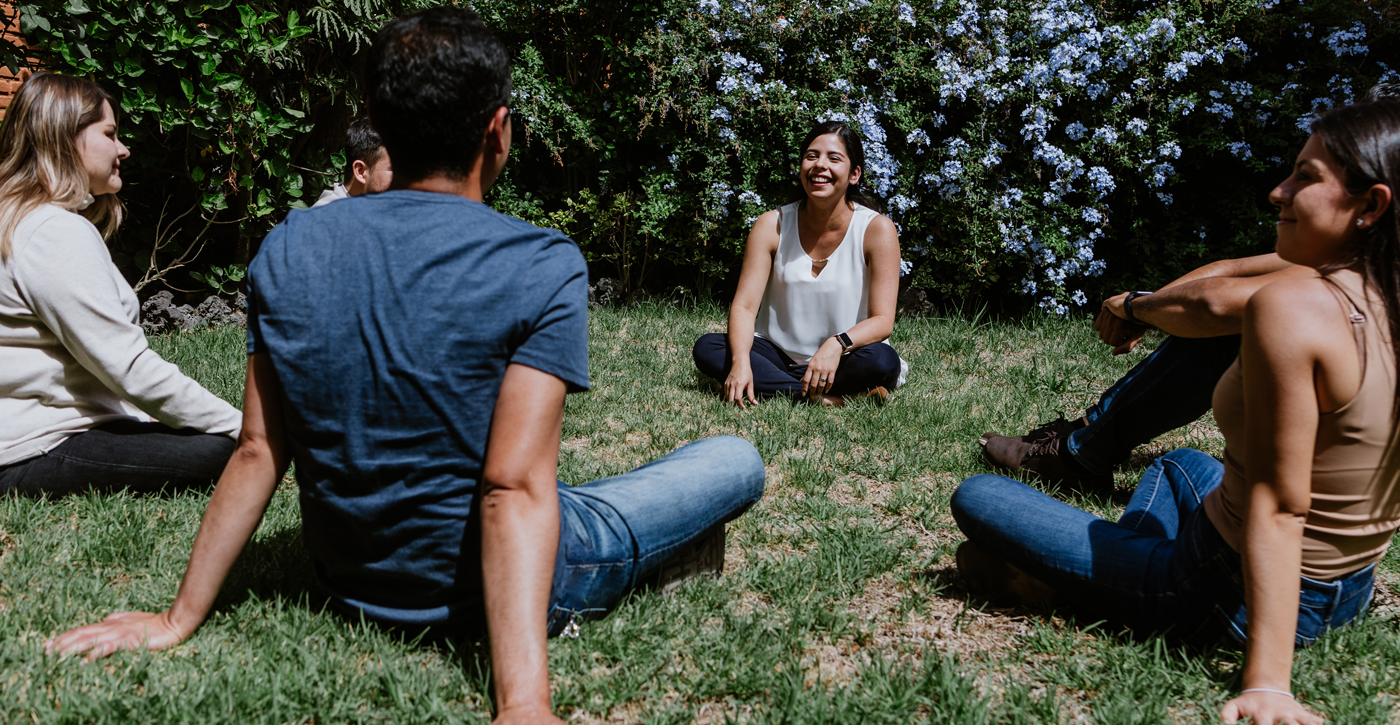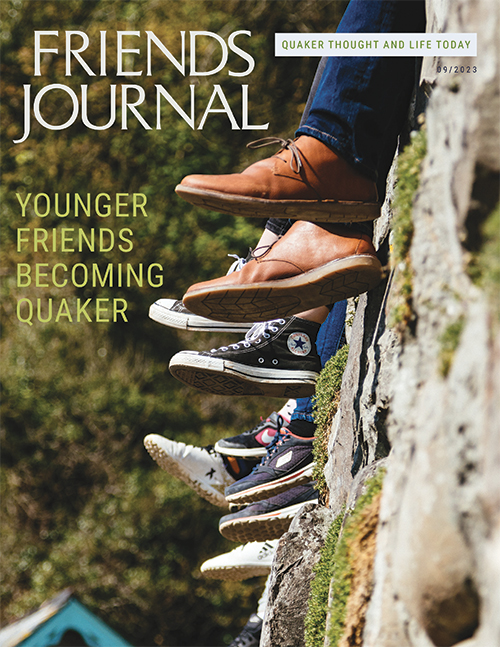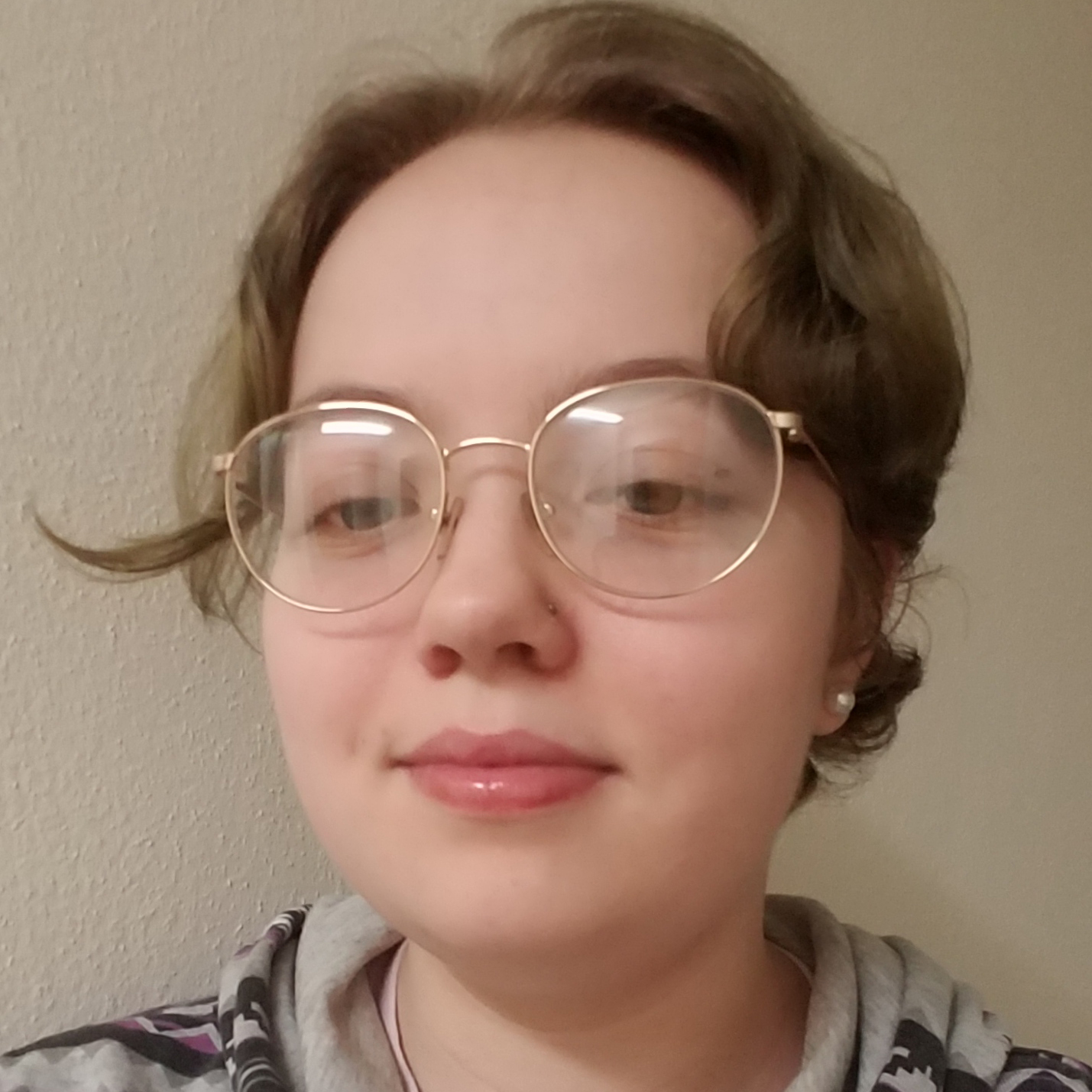As an 18 year old, I have recently begun identifying as a Quaker and have begun pursuing membership at the unprogrammed meeting located on my college campus. If I had not attended a Quaker college, I do not know if I still would have become a Friend. As someone who was raised in a nonreligious and in some ways an antireligious household, I had always been curious about where I landed on the imaginary “faith spectrum” that I had created in my head. As I grew older and watched friends become disenchanted with Catholicism and come out as queer, I began to understand why so many around me avoided religious spirituality altogether. After all, many faith traditions across the globe, including Quakerism, have been weaponized as a means to silence and erase marginalized peoples’ voices and cultures. But from what knowledge I have gathered by studying Quaker history, the Friends I admire most were those who recognized that we needed to do better. We could stop being slaveholders, stop arbitrarily picking and choosing who was worthy of involvement in meeting activities, and start proposing radical solutions to the injustices we face today. It was Friends’ support of progressive social change and the willingness to challenge unjust authority that drew me to their meetings.
The way I see it, Quakers are supposed to be radical or, at the very least, unconventional. It is important to remember that we always have been. It is looking back at trailblazers like Bayard Rustin and the Public Universal Friend that convinces younger people—many angry at the world left for them to fix—that they should feel supported by not only their own spirit but also the precedent set by their faith to radically heal the world and express themselves fully and authentically as they do so.
The way I see it, Quakers are supposed to be radical or, at the very least, unconventional. It is important to remember that we always have been.
Especially since my faith emerged on a college campus, I feel relatively confident showing up as myself at my meeting. I am openly queer, have changed my name during the time I have attended, and openly use they/he/fae pronouns. What I hope is that this information should not come as a surprise. Queer Quakers are everywhere; we are far from deviant, rare, or “just now coming out of the woodwork.” My meeting accepts that, and I am not the only LGBTQ+ person who attends. I feel comfortable there because I know I am accepted, and not just for my identity but for my theology. I am not a Christ-centered Friend, and this, too, should not come as a surprise: there are many atheist, agnostic, and interfaith Friends—in addition to non-Christian theists—who find fulfillment at meeting for worship.
Now, my experience and those of a few others I have met on my short spiritual journey are not sufficient reason to start convincing youth that Quakerism has the potential to be their liberal paradise. After all, not every meeting is on a college campus; not every meeting is theologically liberal; and most U.S. meetings are not very racially diverse. We shouldn’t focus on these issues when trying to prevent the Religious Society of Friends from dying out in the United States. If the end of Quakerism here happens in my lifetime, I will be glad to carry on our legacy in other ways and to preserve our impact on the world. However, accepting a possible ending is not a reason to stop trying to show people who we are: people who encourage greater diversity, acceptance, and love within our Quaker communities.
For me, it is the lack of any evangelism and obligation to be at my meeting that reinforces my comfort there. I am not there because going to worship is what you do in order to call yourself a Quaker. I know plenty of Friends who do not attend meetings at all but are no less comfortable in their spiritual identities. In many ways, Quakerism even encourages a more holistic form of spirituality. I would infer that most Friends don’t meet all of their spiritual needs with just worship. Just like mental and physical health, spiritual health is holistic. Personally, I find fulfillment in using tarot cards to help work through my emotions, which has positively contributed to both my mental and spiritual life. Many people I know, Quaker or not, find satisfaction through closeness to nature, mindfulness practices derived from Buddhism, or simply engaging with others in meaningful ways in nonreligious contexts. The openness of Quakerism intrigues and invites younger people like myself to our meetings.
The important thing is not that Quakerism itself will endure, but that our Quaker spirits will live on and we will continue to be active and loving members of our communities.
The important thing is not that Quakerism itself will endure, but that our Quaker spirits will live on and we will continue to be active and loving members of our communities. While we certainly require members, financial stability, and enthusiasm to continue this important work, we should also bear in mind that our present is far more vital to us than our future; what we do now will preserve our impact and legacy as Friends. Even if we check off all the boxes on the list of spiritual longevity, at the end of the day, we do not get to decide how long we keep thriving as Quaker communities. This does not mean we should give up on continuing; in fact, it means just the opposite. We need to focus on the sacred act of continuing, rather than whether or not that continuing will bring us to an inevitable ending.
I know there are plenty of Friends who may interpret my argument as a demand that we cater to the times. However, if Quakerism is meant to survive, we are bound to change over time, as any religion or spirituality does, collectively and individually. This does not mean becoming chameleons. This means recognizing that defending the health and happiness of ourselves and others, and being open to experiencing what Light and insight younger generations have to offer us. Whether or not those younger generations may ultimately stay or become Quaker, however, is not up to us. In my view, the most important thing is that the Religious Society of Friends keeps having positive impacts on people, even as we become few in number. No matter how much our elders may worry about the ultimate fate of Quakerism, the length of a membership list does not decide whether we are spiritually thriving or not. We thrive in our minds and in our meetings, and we will keep being Quakers for however long the Light wants to keep us here.





I have been part of Quaker meetings for about 15 years and have only just recently started to age out of being a “young adult Friend” into simply an adult Friend. Blaze deeply speaks my mind in all parts of this article. I expect to quote it often when older Friends wring their hands about the shrinking of our society. It is not ours to know how long our faith will continue in its current form and name, that is God’s to know. What is ours is to keep practicing our living faith, and make it a faith worth living. “We will keep being Quakers for however long the Light wants to keep us here”. Indeed.
Lots of wisdom here! I’m in the mid-70 age range, and a lot of the same issues bounce around in my head, so I’m glad to discover a younger Friend who has given this some deep, perceptive thought. I discovered Quakers decades ago during the Civil Rights movement and the Vietnam war protests, and I regret that I did not more fully align myself with Quakers and learn more at the time. Recent experiences suddenly woke me up, and my life now centers much around Friends thought, practice and community. I, too, believe there will be a continuing role for us, and perhaps an expanded role in a world that inevitably compounds its own troubles. I try to stay open to where this is leading me, and leading us collectively. Thanks again for the essay, and please share more of what you discover ahead!